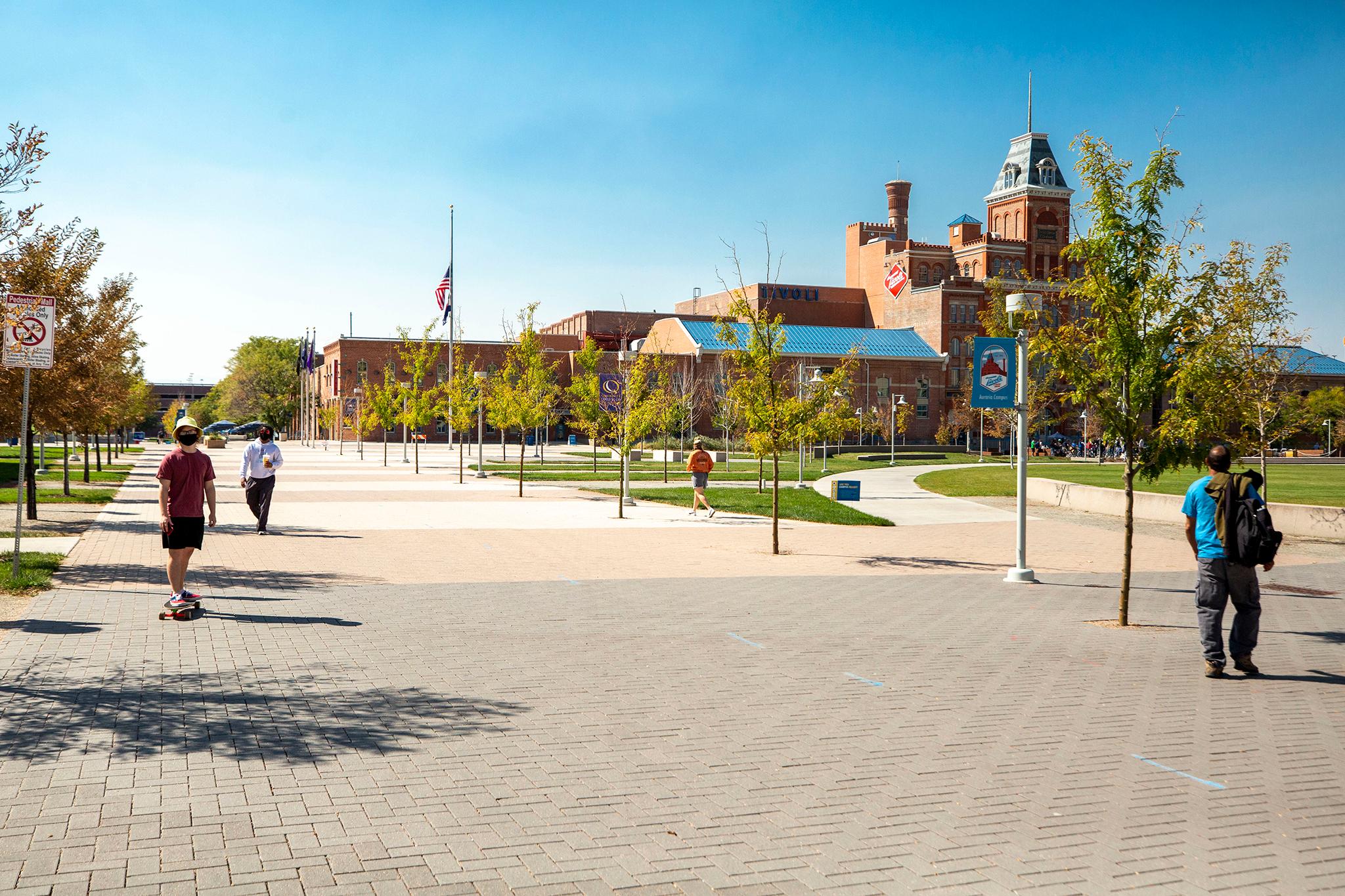Undergraduate students at Metropolitan State University of Denver won't have to worry about their tuition rising. Rates will be locked in for four years starting this fall, the university announced Tuesday.
MSU said each incoming student, regardless of residential status, will be placed within a cohort defined by date of entry to the university, which is guaranteed an unchanged tuition schedule for four years. So while tuition may rise year-by-year for new students, graduating seniors will pay the rate they agreed to when they first enrolled.
For students already enrolled at MSU, tuition will be locked in for up to three years. Incoming transfer students enrolled for the upcoming semester will be eligible for two years of the tuition lock.
Mandatory fees, which can change year by year, are not covered under the tuition lock.
Janine Davidson, MSU's president, said students are struggling with financial stressors caused by record-high inflation. The university hopes providing a stable, predictable price of admission will help.
"Many are working multiple jobs just to keep up with rising costs for rent, groceries, gas and other necessities, while also persevering to earn their college degrees," Davidson said in a statement. "We want them to know that their tuition is one cost that won't be rising."
MSU has one of the lowest tuition rates in the metro area. Because of that, the university has garnered a reputation for serving nontraditional or first-generation students. Nearly half of MSU students are people of color, and 80 percent of students work 30 to 40 hours a week on top of classes.
The tuition lock is the latest policy the Auraria-based university has introduced to keep classes affordable. Earlier this year, MSU made tuition free for students belonging to any of the 574 federally recognized Indigenous nations. It also joined its two sister colleges on the Auraria campus to provide free tuition for descendants of residents displaced by the campus' construction in the 1970s.












